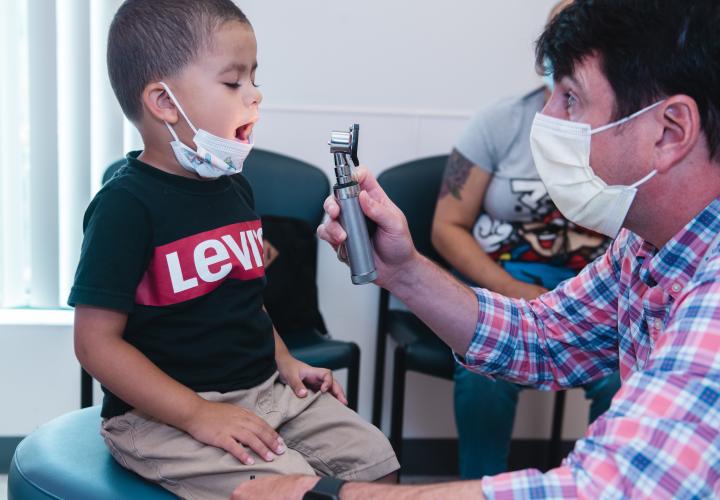Sialorrhea is more commonly known as drooling. It is considered normal in otherwise healthy children up to the ages of 4-6 years. It often becomes problematic in children with neurodevelopmental disorders who have difficulty handling their saliva.
Sailorrhea may cause spillage of saliva from the mouth, or cause a child to choke on saliva if it cannot be swallowed. Sialorrhea is rarely caused by the production of excess saliva.
Conditions We Treat
Our pediatric Ear, Nose and Throat (ENT) specialists offer expert care for the following conditions:
- Anterior drooling (drooling from the front of the mouth), which may result from tonsil or adenoid hypertrophy, poor oral motor tone, dental pathology, swallowing difficulties, or as a medication side effect
- Posterior drooling (aspirating or choking on saliva), which is common among patients with neurodevelopmental disorders
Without treatment, uncontrolled drooling can cause respiratory infections, lung disease, perioral skin breakdown, and have negative psychosocial effects.
Sialorrhea Treatment Options
Your child’s pediatric otolaryngologist will evaluate your child and develop a personalized treatment plan. Treatment options may include:
- Medical treatment with anticholinergic medications
- Botulinum toxin (BOTOX®) injections into the parotid glands, submandibular glands, or both, performed with ultrasound guidance
- Surgical treatment targeting the tonsils, adenoids, or more often the salivary ducts or glands
Why Choose Connecticut Children’s?
Connecticut Children’s is one of the few pediatric medical centers focusing on the effects of untreated drooling on children and their caregivers, both psychosocially as well as medically. We offer specialized treatment with pediatric providers who have made this a focus of research and care.


